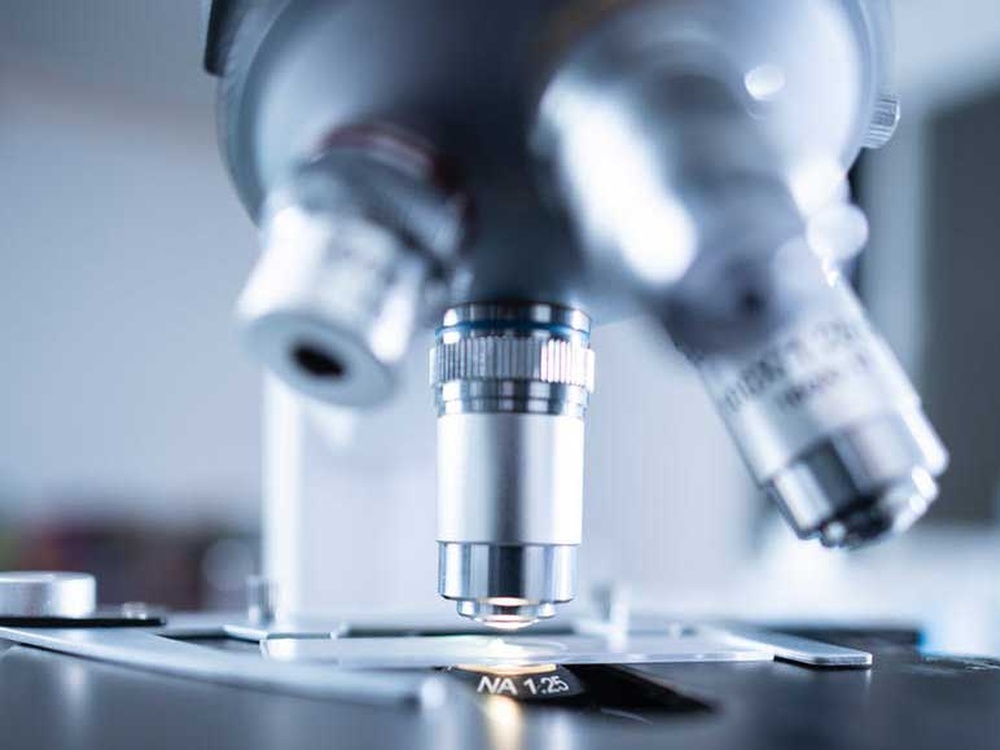Enzyme replacement therapy
Location: St George's, University of London
Research Lead: Dr Bridget Bax
Supporting medical research into mitochondrial diseases is a fundamental aspect of our work at The Lily Foundation. Not only is research our best hope of finding a cure, it also helps improve lives today. In recent years we have seen major advances in the diagnosis and clinical management of mitochondrial disorders, resulting in real positive change for patients and their families.
Last year we invested £250,000 into research, bringing our total research funding since the charity launched to over £2 million. We currently fund 10 separate research projects, all exploring different potential treatments for mitochondrial diseases. We'll be posting regular updates about these projects on our website, newsletter, Facebook and Twitter, starting here with a report on an exciting project based at the University of London.
What's the purpose of this research?
Enzyme replacement therapy is a potential treatment for a type of mitochondrial disease called mitochondrial neurogastrointestinal encephalopathy (MNGIE). MNGIE patients have a gene mutation that blocks production of a certain enzyme, leading to a toxic build-up of metabolites in the blood that damages mitochondria.
How does it work?
Enzyme replacement therapy works just as its name suggests – by restoring the missing enzyme. The enzyme can't simply be injected directly into the bloodstream, because the body's immune system would break it down before it had a chance to work. Instead it has to be encapsulated within a red blood cell, effectively 'hiding' it from the immune system. The enzyme can then survive in the cell long enough for the treatment to work.
How has Lily research funding helped?
The Lily Foundation has been funding a critical aspect of the study, which is to identify potential biomarkers (biological indicators) that can be used to accurately track improvement or deterioration of MNGIE in patients. Clinical trials of enzyme replacement therapy are made possible thanks to these biomarkers.
What stage is the project at now?
The enzyme replacement technique was recently approved by the Medicines and Healthcare products Regulatory Agency (MHRA), clearing the way for patient trials to begin in the UK. Patient recruitment is underway, and efforts are being made to extend trials to other countries including Spain, Italy, France, Germany, Turkey and Israel. In March this year, the project generated a lot of interest when it was presented at the International Consensus Conference on Diagnosis and Treatment of MNGIE. The project is now an international collaboration.
What are the most ground-breaking aspects of this project?
If patient trials prove successful, enzyme replacement therapy would be the first effective treatment available to people with MNGIE. It could also set a precedent for how such trials can be conducted. Enzyme replacement therapy uses a combined cellular and biotechnology therapeutic, which in order to work needs to be administered within 30 minutes of manufacture. This requires a unique set-up for the trial, whereby the therapeutic is manufactured and administered on site. The regulatory process was therefore more complex than usual, and approval from the MHRA could lead to other therapies being trialled in a similar way.
What is the research team saying?
Dr Bridget Bax, the project's principal investigator at St George's, said: "There is currently a real unmet need for people with MNGIE. I don't want to speak too soon, but it's possible our therapy could be the first line of treatment for these patients. So we're very excited about that. The funding from The Lily Foundation has helped us continue our work and take things to trial stage. I've been really impressed by how active the charity is on the research side, and with the work it does to support people affected by mitochondrial disease in general."
How can I help?
We are able to fund life-changing research projects like the ones mentioned here thanks to the incredible generosity of our donors and supporters. If you would like to donate to our research programme, or join us in raising awareness about mitochondrial disease, please visit our homepage to find out how. If you belong to a company or organisation that would like to be involved, please email [email protected].

